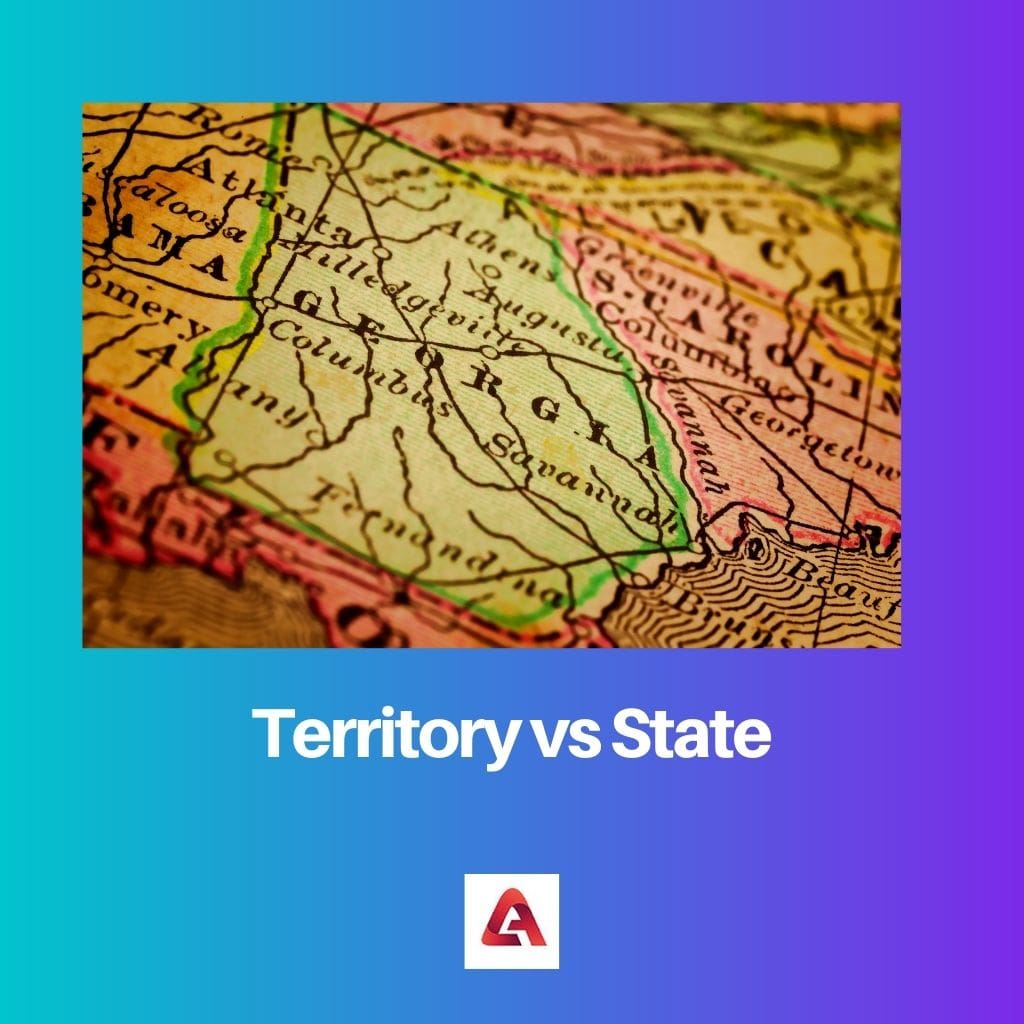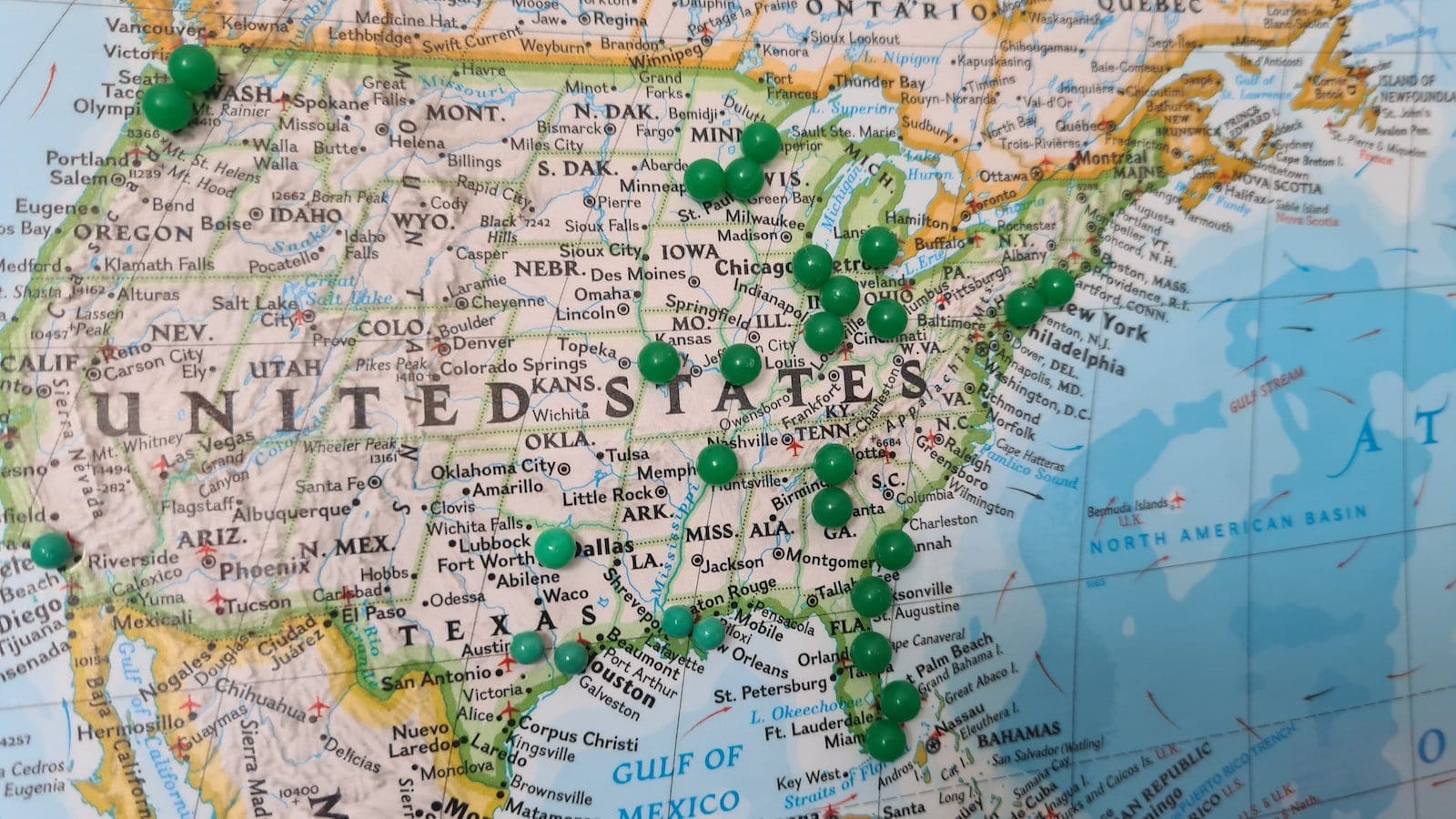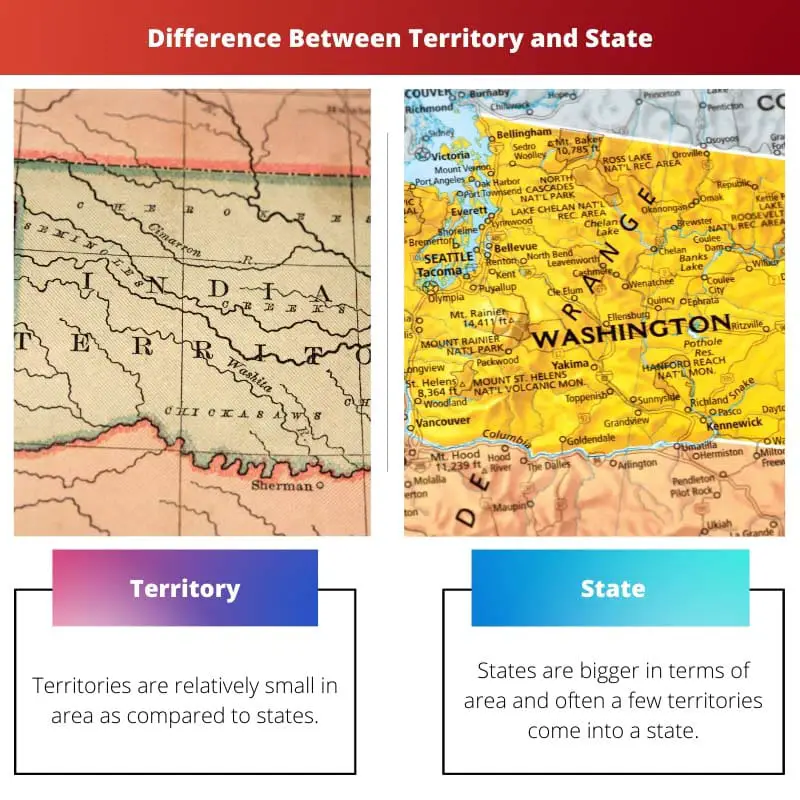The political division of a landmass can be of varying forms and faces, with the major ones being continents, countries, etc. However, the smaller units matter to the people, as the ruling bodies of each of these small political divisions affect the people directly and the most.
Such small political divisions are states and territories. However, there are many divisions in the governance and official terminologies between both of these terms.
Key Takeaways
- Territory refers to a geographical region or land area, under the control of a government or other authority; a state is a political entity with defined borders, a government, and sovereignty.
- Territories can be controlled by a state or a group of states and can be either self-governing or under the authority of another government; states are independent and have the power to govern themselves.
- Territories may become states through annexation or incorporation; states may divide or merge, leading to changes in their political boundaries.
Territory vs. State
A territory is an area of land that has not yet achieved full statehood or sovereignty but is subject to the authority of a larger country or nation. States have full sovereignty and authority over a defined territory and population and are recognized as sovereign entities by other states.

Territories are a piece of land that is not divided further and is not too large in terms of area (they are relatively smaller than states in general). Territories are a political unit of a country that, however, does not get the equal political status and treatment that any other political subdivision of that country, such as a state, might get.
Usually, several territories unite to form a state, and the state government leads this state. On the other hand, states are the units in which a federal country is further broken down to ease governance.
Also, each state can govern certain areas and topics independently in a federal state. These topics are pre-decided by the central government (the government that governs the country) and the state government.
A state, in general, is larger in terms of area than a territory.
Comparison Table
| Parameters of Comparison | Territories | State |
|---|---|---|
| Definition | Territories are politically divided areas that do not have proper political governance of their own. | States are the next basic unit of division in a country that enjoy their administrative policies. |
| Area | Territories are relatively small in area as compared to states. | States are bigger in area, and a few territories come into a state. |
| Political Benefits | Territories do not enjoy several political benefits provided by the central government. | States enjoy all the political benefits that the central government has to offer. |
| Method of Control | Territories do not have their own governance policies. | States have their government and can pass their laws on various issues. |
| Citizens Benefits | Citizens of territories enjoy only a limited amount of rights and benefits. | Citizens of states enjoy the full rights and benefits they can get. |
What are Territories?
Territories are administrative divisions with a relatively smaller administrative area of coverage than states. Usually, all a territory’s administrative and political activities come under the state’s jurisdiction.
However, it is understandable that territories do not get to enjoy the rights and full political benefits that a state can enjoy. The word territory is derived from the Latin word territorium.
Territorium stands for ‘land around a town.’ In this case, we can clearly understand how this would be applicable, as the land around a town would not be much big. Similarly, a territory is characterized by its small political area coverage.
There are quite a few types of territories. The main ones are capital territory, dependent territory, federal territory, overseas territory, etc.
Capital territories are those where the administrative capital of a country is located. This is done so that no other state can take undue advantage or importance because the capital is within its borders.
Dependent territories are not independent yet and are not in the direct political-administrative capabilities of the federal government. Federal territories, on the other hand, are under the central government’s direct jurisdiction.
Overseas territories are those under the government’s jurisdiction but are separated by the ocean lying between the mainland and the territory.

What are States?
States are the units in which the political land of a country is divided. A state can be created due to a variety of reasons, like due as a certain religious majority being present there or due to other political reasons.
Officially, in a federal country, a state is defined as the federal polity that makes up the federal country. The word state could have been derived from several European languages as many similar words could have possibly been involved in its etymology. However, it is predominantly believed to have originated from the Latin word status, which means a condition or circumstances.
In federal government systems, a state government and the federal government are separate entities.
The state government gets to formulate the rules and regulations of various topics and can implement them in its own politically bound area. And just like the federal government, states also have elections, high courts, police departments, etc.

Main Differences Between Territory and State
- The main difference between territory and state is that territory is a small political division that does not have an administration of its own. In contrast, a state is a relatively larger portion of land that constitutes a federal nation and has a government of its own.
- Territories are small, while states are relatively larger.
- Territories do not enjoy various administrative benefits offered to states.
- Territories do not have their government, while a state can form its government and operate with full functionality.
- Citizens of territories enjoy only limited benefits compared to citizens of a state, who enjoy the full rights and benefits the government offers.




